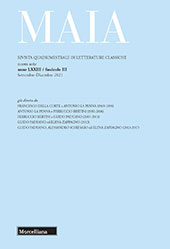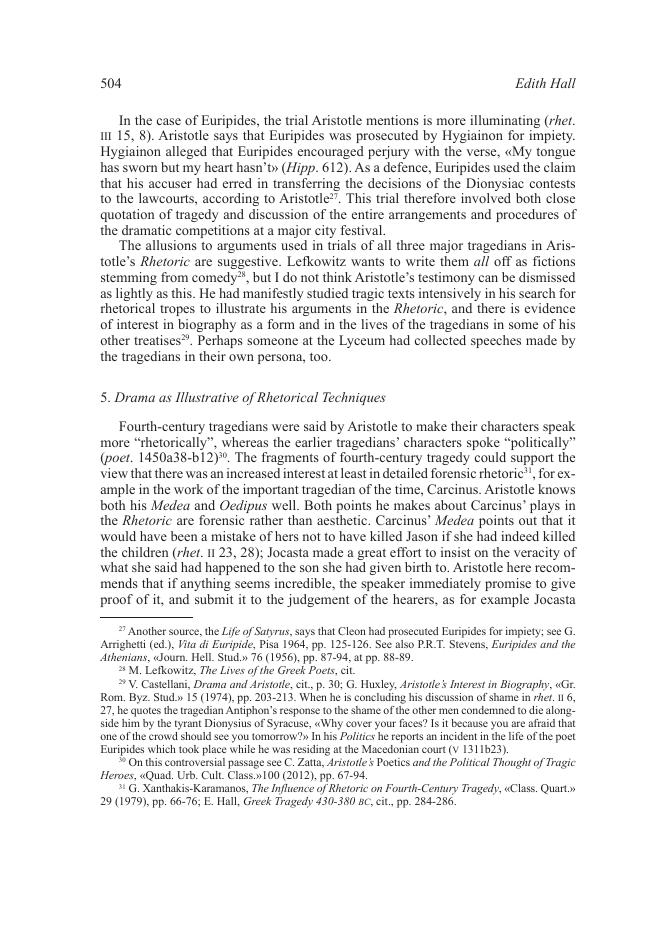Actors and theatre in Aristotle's rhetoric and beyond
P. 496-511
This article examines the references to actors, dramatists, Greek tragedy and comedy and use of theatrical imagery in Aristotle's Rhetoric and some of his other treatises, especially the Nicomachean Ethics and Politics. It argues that Aristotle was immersed in theatrical culture and that this explains the preponderance of quotations from dramatic texts rather than, for example, rhetorical speeches, across his oeuvre. It places particular emphasis on his account of trials in which the dramatists were believed to have defended themselves, and shows that the aspect of Aristotle's rhetorical theory which has been most discussed in relation to theatrical performance, delivery, is actually the least important aspect.
Since the life of the happy human via friendships with others and the social, political and deliberative life as a “political animal” in the polis is conducted via verbal reasoning and communication, this means that drama, in underpinning rhetorical theory and informing rhetorical practice, is fundamental to Aristotle's entire moral philosophy. [Publisher's text]
-
Articles from the same issue (available individually)
-
Information



